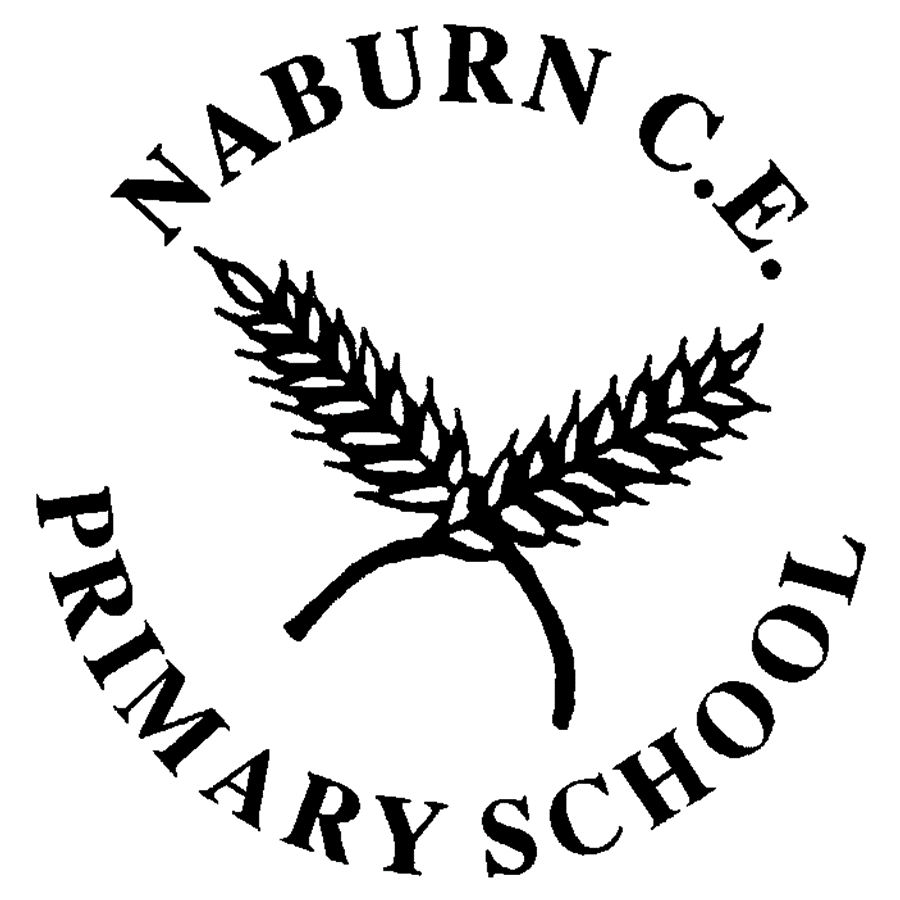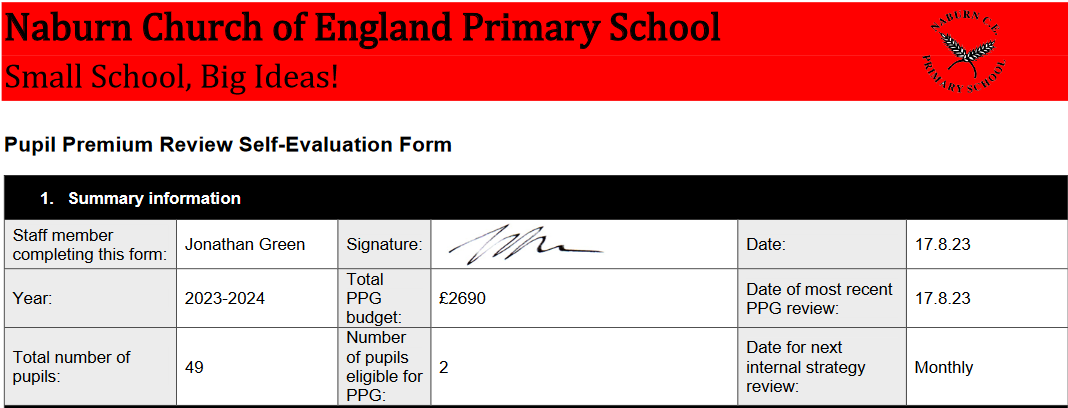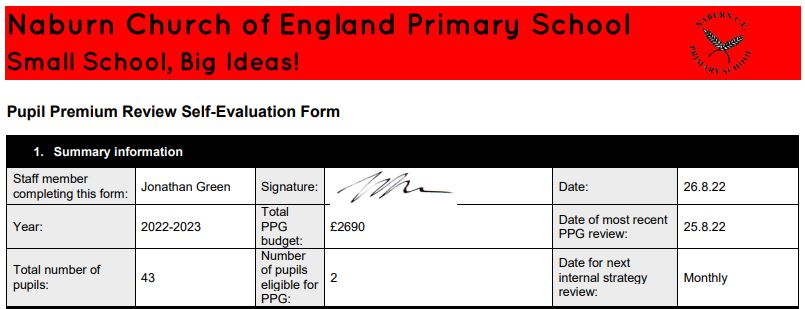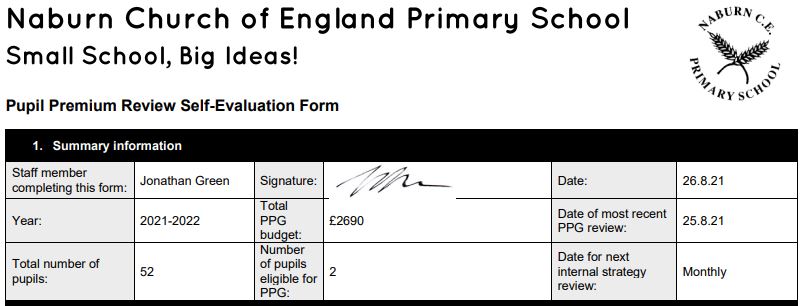Covid Catch Up Premium
Following the unprecedented disruption to education as a result of coronavirus (COVID-19), schools were allocated additional funding in 2020-2021 to support their work in ‘catching up’ their children. This was known as the Covid Catch Up Premium, and you can view information about how this was used here. This funding later became the Recovery Premium, the reporting of which was integrated into the Pupil Premium Strategy, and the Recovery Premium was then withdrawn in 2024.
Pupil Premium 2023-2024
Pupil Premium 2022-2023
Context
Our catchment and intake is unique in so many ways. A substantial number of our children come from Traveller backgrounds. We also have a mix of village children who come from families with high educational aspirations, who are very well supported at home.
Strategy
As a consequence of this blend, post Ofsted inspection, we looked to use our Pupil Premium Funding to benefit all learners by keeping class sizes small and Pupil to Teacher ratios as good as could be afforded. This enabled us to cater for our more vulnerable groups in school and ensure that they were getting exceptional ‘quality first’ classroom teaching in the Core Subjects. Not only that, but this ensured that all children were challenged according to their ability and all learning groups are beginning to flourish.
Pupil Premium funding is reviewed and paid at key census points throughout the year and it is difficult to confirm the exact funding available until the end of the year, but there was a significant drop in the grant this year due to mobility. We review this strategy termly and update this information at the end of the academic year, to include details of the impact of our actions.
The total amount was £2690.
As last year, we measured impact through monitoring progress in Reading, Writing and Maths. This was discussed regularly at our Teaching and Learning Committee meetings. The progress of pupils is discussed at our regular Pupil Progress meetings with teachers, which are a central part of our Performance Review structures in school.
*Due to the small number of children at Naburn CE Primary who qualify for this grant, published details (such as main barriers to achievement) are kept as general as possible in order to ensure confidentiality.
Pupil Premium 2021-2022
In 2020/21 the Pupil Premium Grant was used to:
Further develop resilience and independence. It supported Teaching Assistant hours to provide timely interventions to enable our pupil premium children to be supported as needed throughout the year, for example providing small group support on return to school after lockdowns when anxiety was a barrier to learning. We also used the funding to support families in extending and enriching the curriculum through free educational visits and clubs, so that no children are left out of our provision. We also used it to provide milk for our pupil premium children every breaktime. You can find our Pupil Premium Policy on the School Policies page.
Pupil Premium funding is reviewed and paid at key census points throughout the year and it is difficult to confirm the exact funding available until the end of the year, but there was a significant drop in the grant this year due to mobility. We review this strategy termly and update this information at the end of the academic year, to include details of the impact of our actions.
The total amount was £5690.
As last year, we measured impact through monitoring progress in Reading, Writing and Maths. This was discussed regularly at our Teaching and Learning Committee meetings. The progress of pupils is discussed at our regular Pupil Progress meetings with teachers, which are a central part of our Performance Review structures in school.
*Due to the small number of children at Naburn CE Primary who qualify for this grant, published details (such as main barriers to achievement) are kept as general as possible in order to ensure confidentiality.
In 2019/20 the Pupil Premium Grant was used to:
Build on the work started last year on developing resilience and independence. It supported Teaching Assistant hours to provide timely interventions to enable our pupil premium children to be supported as needed throughout the year, for example providing small group support in the lead up to SATS when anxiety can be a barrier to learning. We also used the funding to support families in extending and enriching the curriculum through free educational and residential visits and clubs, so that no children are left out of our provision. You can also find our Pupil Premium Policy on the School Policies page.
The total amount was £5580.
As last year, we will measure impact through monitoring progress in Reading, Writing and Maths. This will discussed at our Teaching and Learning Committee meetings. The progress of pupils is discussed at our regular Pupil Progress meetings with teachers, which are a central part of our Performance Review structures in school.
*Due to the small number of children at Naburn CE Primary who qualify for this grant, published details (such as main barriers to achievement) are kept as general as possible in order to ensure confidentiality.
In 2018/19 the Pupil Premium Grant was used to:
Build on the work started last year on developing resilience and independence. It supported Teaching Assistant hours to provide timely interventions to enable our pupil premium children to be supported as needed throughout the year, for example providing small group support such as circle time and interventions in the lead up to SATS to help alleviate anxiety. We also used the funding to support families in extending and enriching the curriculum through free educational and residential visits and clubs, as last year. You can also find our Pupil Premium Policy on the School Policies page.
The total amount was £5580.
As last year, we will measure impact through monitoring progress in Reading, Writing and Maths. This will discussed at our Teaching and Learning Committee meetings. The progress of pupils is discussed at our regular Pupil Progress meetings with teachers, which are a central part of our Performance Review structures in school.
*Due to the small number of children at Naburn CE Primary who qualify for this grant, published details (such as main barriers to achievement) are kept as general as possible in order to ensure confidentiality.
In 2017/18 the Pupil Premium Grant was used to:
Build on the success of the funding last year, maintaining Teaching Assistant and ELSA (Emotional Literacy Support Assistant) hours to provide timely interventions to those pupils at risk of making slow progress. The funding was also be used to train staff (and then children) in Mindfulness, an area proven in research to particularly relate to barriers faced by Pupil Premium children in terms of developing awareness, independence and resilience. We also used the funding to support families in extending and enriching the curriculum through free educational and residential visits and clubs, as last year.
As last year, we measured impact through monitoring progress in Reading, Writing and Maths.This was discussed at our Teaching and Learning Committee meetings. The progress of pupils is discussed at our regular Pupil Progress meetings with teachers, which are a central part of our Performance Review structures in school.
The total amount of PPG was £9,240.
*Due to the small number of children at Naburn CE Primary who qualify for this grant, published details (such as main barriers to achievement) are kept as general as possible in order to ensure confidentiality.
In 2016/17 the Pupil Premium Grant was used to:
Maintain Teaching Assistant and ELSA (Emotional Literacy Support Assistant) hours, to provide timely interventions. This support particularly focused on the barriers to learning, such as developing self esteem and wellbeing and allowed time for small group interventions and one to one support as needed.The funding was also used to support these children and families in extending the enrichment of the curriculum, for example providing free educational visits and residential visits and free access to extra-curricular clubs. The total amount of PPG was £10,823.
We have measured the impact of this grant by monitoring progress being made in Reading, Writing and Maths for all of our eligible PPG pupils. Progress is monitored at least termly and is discussed at our Teaching and Learning Committee meetings. The progress of pupils is discussed at our regular Pupil Progress meetings with teachers.




